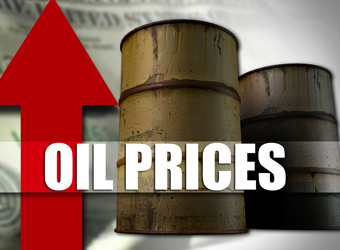Brent crude rose as high as $60.53, its highest level since July 3, 2015. It was up $1.02, or 1.7 percent, at $60.32 by 2:23 p.m. ET (1823 GMT).
U.S. light crude oil ended Friday’s session up $1.26, or 2.4 percent, at $53.90, closing at an 8-month high going back to February 28.
Ahead of OPEC’s next policy meeting, Saudi Arabia and Russia declared their support for extending a global deal to cut oil supplies for another nine months, OPEC’s secretary general told Reuters on Friday. The pact runs to March 2018.
Saudi Arabia’s Crown Prince Mohammad bin Salman told Reuters on Thursday the kingdom would support extending the output cut in a bid to stabilise oil demand and supply.
Oil prices have been hovering near their highest levels for this year amid recent signs of a tightening market, talk of an extension of production cuts and tensions in Iraq.
Friday’s announcement of a ceasefire between Iraqi forces and the Peshmerga from the country’s autonomous northern Kurdish region eased some concerns.
“I think the combination of short covering and Chevron and Exxon both missing their production guidance for the third quarter has resulted in the market strength today,” said Scott Shelton, energy futures broker with ICAP in Durham, North Carolina.
The Organization of the Petroleum Exporting Countries and some non-OPEC producers including Russia have pledged to reduce production by around 1.8 million barrels per day (bpd) until the end of March 2018 to drain a global supply glut.
“If OPEC and their non-OPEC partners can agree to extend their production curtailments through 2018, then we estimate the oil market will remain in modest under-supply until 2019,” U.S. Investment bank Jefferies said.
OPEC is expected to discuss extending that agreement at a meeting in Vienna on Nov. 30.
Rising U.S. crude production remains an issue for OPEC as it strives to clear a global overhang. U.S. crude production rose by 1.1 million bpd to 9.5 million bpd in the week ended Oct. 20, according to U.S. Energy Information Administration data.
On Friday, Baker Hughes reported its weekly count of oil rigs operating in U.S. oilfields ticked up by 1 rig to a total of 737.
TransCanada Corp said in a filing on Thursday that it is seeking to raise the temporary discounted spot rate for light crude on its 700,000 barrel-per-day Marketlink pipeline. The news sent U.S. crude benchmark’s discount to global marker Brent to the widest in a month.
“What is interesting is that the pop in WTI futures moved above the Sept. 28 high,” said David Thompson, executive vice president at Powerhouse, an energy-specialized commodities broker in Washington, D.C.
“So even though the dollar is giving back some of its move, crude may now be trading off of a new driver, the technical breakthrough to a new high.”
The dollar trimmed its earlier gains on Friday versus a basket of currencies following a Bloomberg report that U.S. President Donald Trump is said to be leaning toward Federal Reserve Governor Jerome Powell as his pick to head the U.S. central bank.
A weaker dollar makes greenback-denominated commodities including oil cheaper for holders of other currencies. Source: Reuters
Source: Reuters
